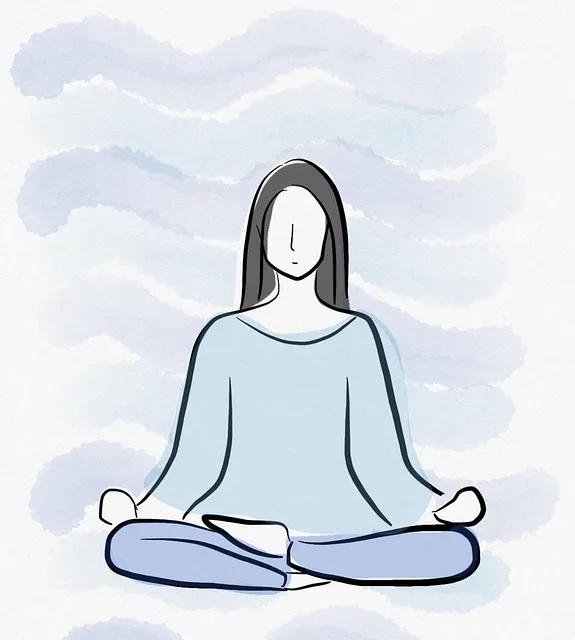Overlooking self-care can harm mental health, but practices like mindfulness, exercise, and quality sleep, emphasized by Superior Kaiser Permanente psychiatry services, improve coping abilities and reduce anxiety/depression. Stigma reduction is key to creating a supportive environment. Kaiser's holistic approach, including education programs and trauma support, empowers individuals with tools for personalized self-care, fostering balance, contentment, and resilience.
Self-care is an essential aspect of maintaining mental well-being, and for good reason. In today’s fast-paced world, it’s easy to neglect our own needs. This article explores the significance of self-care practices for mental health, offering insights into how to integrate effective strategies into your daily routine. We’ll discuss everything from understanding your mental well-being to leveraging professional support from Superior Kaiser Permanente psychiatry services, ensuring you have the tools to thrive.
- Understanding the Importance of Self-Care for Mental Well-being
- Integrating Effective Self-Care Strategies into Daily Life
- The Role of Professional Support in Enhancing Self-Care Practices
Understanding the Importance of Self-Care for Mental Well-being

In today’s fast-paced world, it’s easy to overlook self-care as a priority. However, understanding the importance of nurturing our mental well-being is crucial for maintaining overall health, especially in light of rising mental illness rates and the pervasive stigma associated with it. Superior Kaiser Permanente psychiatry services underscore the critical role self-care plays in managing stress, preventing burnout, and promoting resilience. By integrating practices that support emotional balance and psychological flexibility into our daily lives, we can significantly enhance our ability to cope with life’s challenges.
A robust Self-Care Routine Development for Better Mental Health involves a combination of Stress Reduction Methods tailored to individual needs. This may include mindfulness meditation, regular physical activity, sufficient sleep, or engaging in hobbies that bring joy. These practices not only alleviate symptoms of anxiety and depression but also foster a deeper sense of connection with oneself and one’s surroundings. Moreover, Mental Illness Stigma Reduction Efforts are integral to creating a supportive environment where individuals feel empowered to prioritize their mental health without fear of judgment.
Integrating Effective Self-Care Strategies into Daily Life

Incorporating self-care practices into daily routines is a transformative journey that requires dedication and consistency. At Kaiser Permanente, our focus on emotional well-being promotion techniques emphasizes the importance of holistic care. By integrating activities like meditation, regular exercise, and quality sleep, individuals can effectively manage stress and enhance their overall mental health. These strategies not only help in resolving conflicts within oneself but also prepare individuals to navigate challenging situations with a calmer mindset.
The Mental Health Education Programs Design at Kaiser Permanente is tailored to empower people with the knowledge and skills needed for self-care. Through these programs, we guide individuals towards discovering personalized practices that cater to their unique needs. Whether it’s learning advanced conflict resolution techniques or exploring creative outlets for emotional expression, our initiatives aim to foster a sense of balance and contentment in daily life. This, in turn, contributes to improved mental resilience and overall well-being, as recognized by the superior Kaiser Permanente psychiatry services.
The Role of Professional Support in Enhancing Self-Care Practices

Professional support plays a pivotal role in empowering individuals to enhance their self-care practices, especially those dealing with complex mental health challenges. Superior Kaiser Permanente psychiatry services offer specialized Trauma Support Services tailored to address past traumas that may hinder one’s ability to engage in effective self-care. These services provide a safe space for individuals to explore and process traumatic experiences, enabling them to develop healthier coping mechanisms.
Mental health professionals are equipped with the necessary tools to conduct comprehensive risk assessments, identifying potential risks and triggers unique to each individual. By integrating this knowledge into their self-care plans, clients can better navigate their mental well-being. This holistic approach ensures that self-care practices are personalized, resilient, and sustainable in the long term.
Self-care is a powerful tool for enhancing mental well-being, and with the guidance of superior Kaiser Permanente psychiatry services, individuals can unlock their potential for a healthier, happier life. By understanding the importance of self-care, integrating practical strategies into daily routines, and seeking professional support when needed, one can achieve a profound sense of balance and resilience. Embracing these practices allows us to navigate life’s challenges with greater ease, fostering both personal growth and overall well-being.






